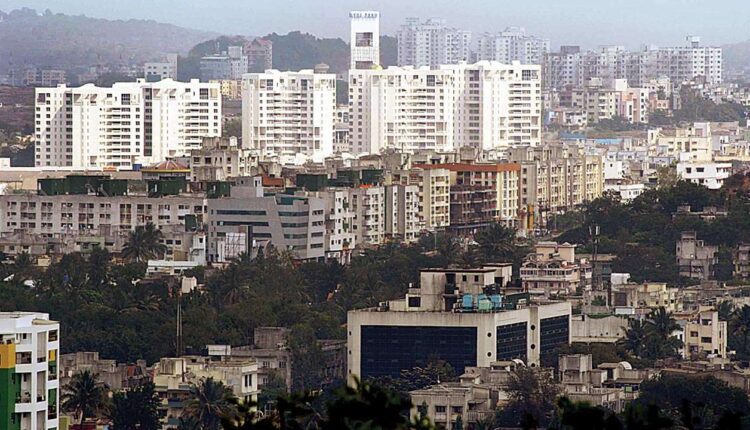Scientists at the Agharkar Research Institute (ARI) in Pune have discovered a new low-altitude basalt plateau in the Western Ghats’ Thane region. The plateau, now listed as the fourth plateau type in the mountain range, houses 76 plant and shrub species from 24 families, which the scientists say can hold clues to the impact of climate change on the survival of species.
“The Western Ghats are one of the four global biodiversity hotspots in India. There were so far three known plateau types in the Western Ghats — high-altitude laterite plateaus, low-altitude laterite plateaus and high-altitude basalt plateaus. We have been studying these plateaus and the plant species inhabiting the region for close to two decades now, and have only recently discovered that there is a fourth type here, the low-altitude basalt plateau,’’ said Dr Mandar Datar, lead scientist of the study.
Dr Datar’s team discovered the rare low-altitude basalt plateau in Manjare village.
Surveying the plateau, the team documented 76 species of plants and shrubs from 24 different families. The authors believe this is an important discovery, as the plateau shares vegetation with the three other rock outcrops, simultaneously holding a few unique species. This gives a unique model system to study the species interactions in varying environmental conditions.
“This study of plateaus in the Western Ghats is extremely important. These are open and mostly arid habitats and the survival of plant species here is an important repository of information on how vegetation can survive in high-temperature conditions that are likely to take place with climate change. There are only four months in the year—during the monsoon — that are favourable for plants. So the plants that grow here only have four-month lifecycles. After the monsoons, there is a severe water paucity here and the plants die out,” Dr Datar said.
“The plants survive in two ways—by seeding just before the end of the monsoon spell or by storing nutrition underground, in the form of bulbs,” he added. “These plants continue to survive in the extremely hostile environment, with soil temperatures going up to 60 degrees Celsius during the summer months.’’
Dr Datar said the ARI team was studying how exactly these plants survived in such hostile conditions and if there was a genetic component as well to their survival. “If there is a gene that assists in the survival, for instance, then scientists can use the gene for crop survival and other such research and applications in the future. That is why information about these plateaus and plants are crucial,’’ he said.
Dominant landscapes in the Western Ghats, plateaus are significant because of the predominance of endemic species. They are classified as a type of rock outcrop.
The research paper was published in the Springer Nature journal National Academy of Science Letters.


